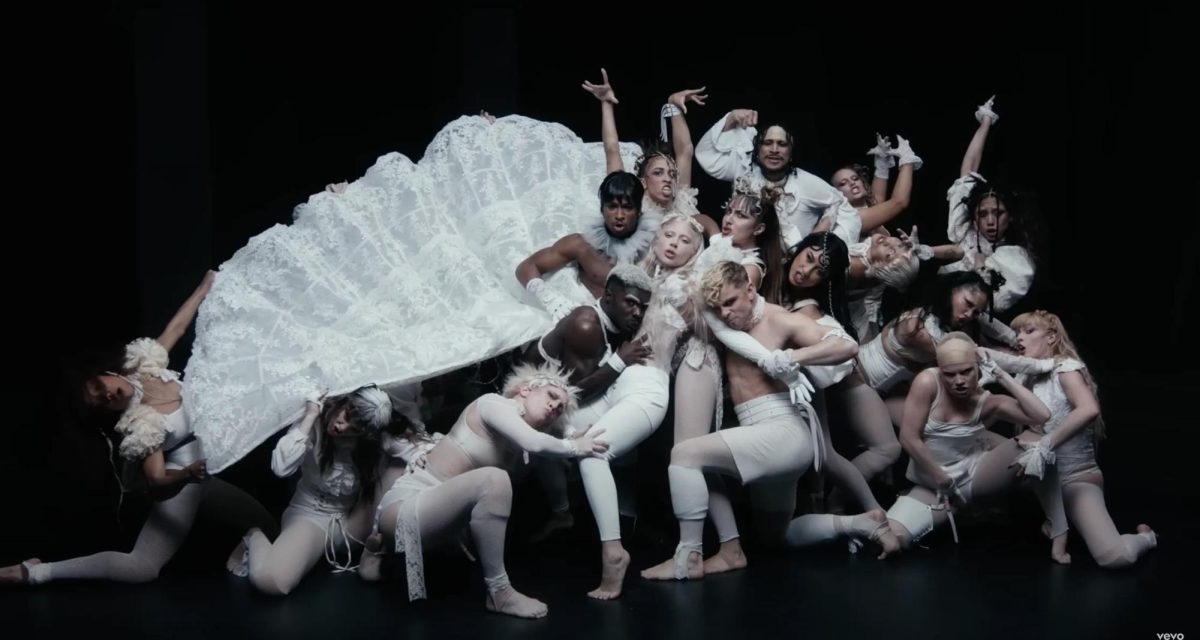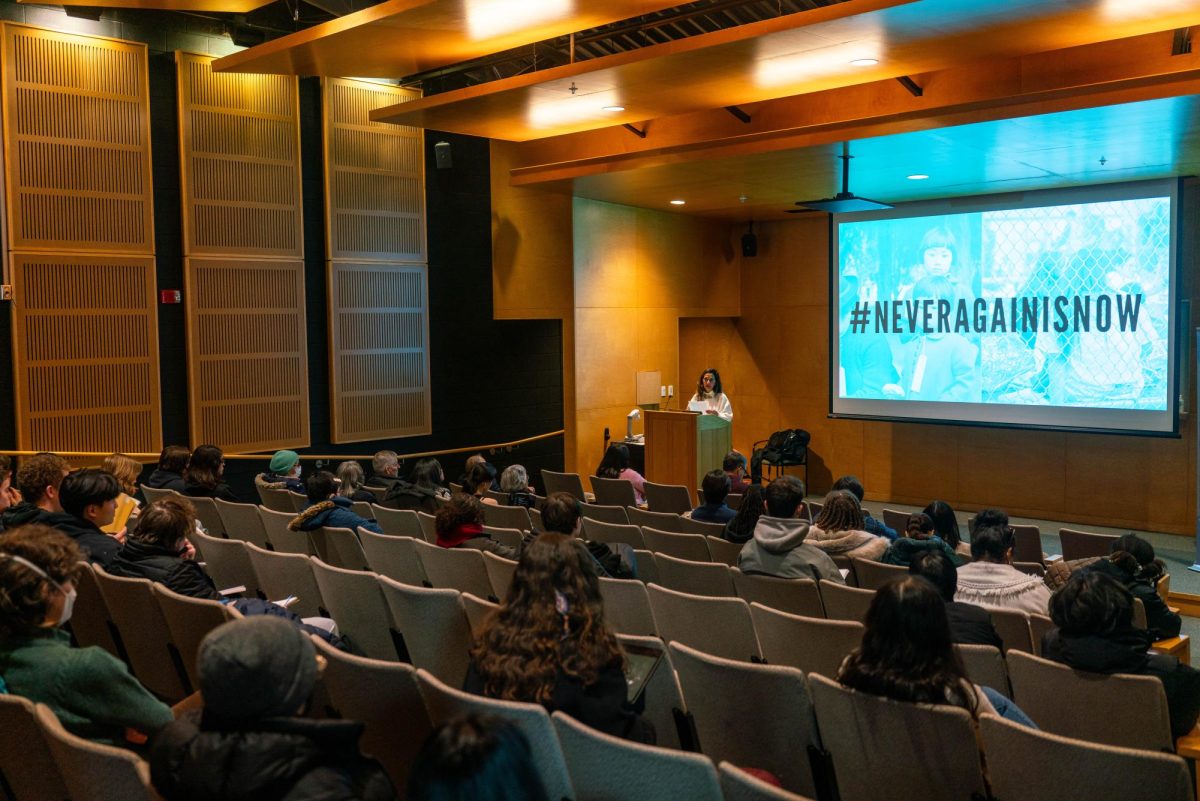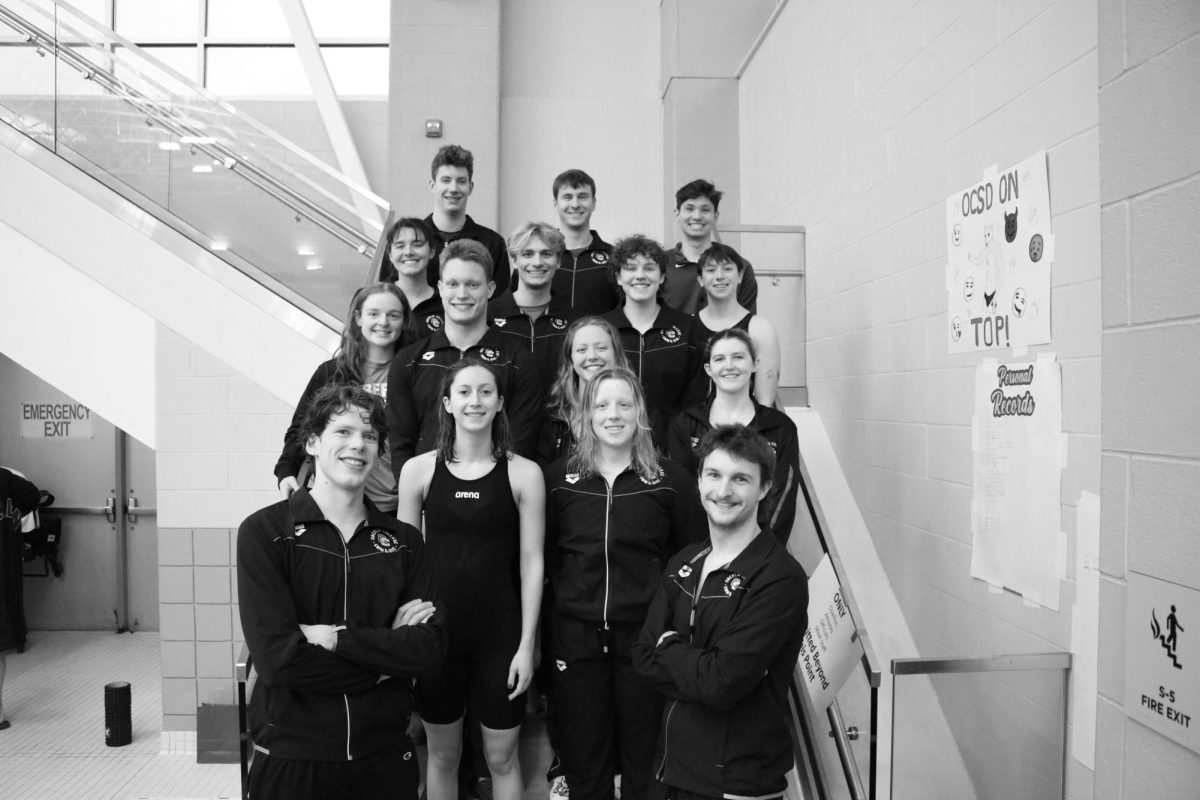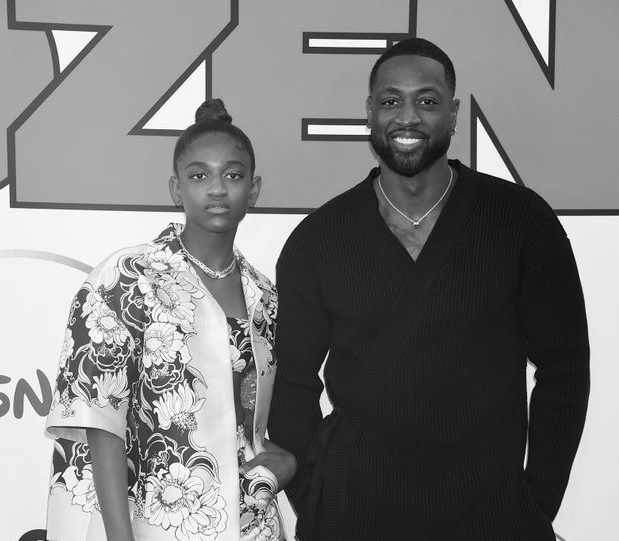Billie Streets Speaks on Athletics, Success
February 10, 2012
Billie Streets, OC ’86, remembers her years playing for the Oberlin women’s basketball team in a way many Division III athletes would understand: “We were not good — we had fun, but we really weren’t good.” Still, at her talk on Sept. 7, Streets emphasized the importance of achievement. Indeed, her frequently sports-oriented vocabulary lent itself well to discussing corporate and personal success with her audience.
“I would hope that you guys come to understand that winning is important,” she said. “When you come out into corporate America, you’ve got to compete.”
Streets has certainly competed well in her professional life since Oberlin. After serving as director of special events for the New York Knicks, she joined the Madison Square Garden Group and worked her way up to the position of vice president of corporate events and communications administration, overseeing meetings, conferences and events for a long list of groups, including MSG Corporate, MSG Garden of Dreams Foundation, the New York Knicks, the New York Rangers and the New York Liberty.
Given her success as an Oberlin alum and as a black woman in a male-dominated field, it’s no wonder that Streets’s visit would be sponsored by the John W. Heisman Club, Career Services and the Multicultural Resource Center. However, the event was presented primarily through the lens of the Athletics department, with Athletic Director William Roth facilitating the discussion and athletes comprising the majority of the audience. The women’s lacrosse team arrived en masse five minutes before the starting time, preceding a flood of other attendees that rapidly filled and exceeded Wilder 101’s seating capacity.
“We’re here to support the Athletic department,” said lacrosse player and College junior Seung Yun Jee. “And as athletes, we may want to do something similar [to Streets] after school.”
Streets encouraged such identification by establishing a sense of camaraderie early in her talk with sports trivia questions: Correct answers were rewarded with New York team baseball hats, incorrect guesses with audience laughter. Afterward, she asked the student audience what the mentioned teams and players had in common, writing down suggested qualities that lead to success. Suggestions ran from passion and confidence to luck and swag. Pointing to these words, Streets drew the following connection: “What we need to be successful in life we also need in sports.”
According to Roth, this lesson was just what the Athletics department wanted attendees to walk away with. “We want our student-athletes to understand how their work as athletes can be a springboard to a life of success and a life of happiness,” he said. “[We want] the athletes in the room to see more of a finished product who says, ‘I used to be like you, and I’ve achieved this, but I can still relate to you.’”
For College sophomore Kelsey Steiner, this mission proved successful. “I thought it was absolutely great. I thought she connected with us really well [and] it’s great to know there are careers out there we could do.”
Streets discussed the process of entering the corporate work force at length, offering critical advice for future interns and job applicants. “You guys were kind of raised in this era of instant gratification. …You’re not aware of it, but it translates into how you work. We’re getting a lot of interns who are coming in who want everything, right now. Like, ‘I don’t want to do that, that’s beneath me, I want that job’ — and you don’t even have a college degree yet, you know.” Streets herself started out driving players to doctor’s appointments and “licking stamps” during an internship that got her “in the door” to the NBA. Networking, she explained, is essential even at the earliest level of job experience.
Streets was less decided when addressing the issue of being a woman in the male-dominated corporate world. She recalled how she was once passed over for a promotion in favor of a man, solely because he had a family to support. Her advice to young women was to find the balance “between being a strong woman and not coming over too aggressive,” to become as qualified as possible (she recently earned a Ph.D in Management and Marketing) and to stay true to yourself.
Throughout the evening, Streets interspliced her advice with encouragement, telling her audience to “stay hopeful, stay passionate” and insisting that even she was “a work in progress” with a developing five-year plan and a desire to someday teach business to undergraduate and MBA students. This work ethic overlaps well with goal-oriented athleticism; in fact, as Streets described her own plans, women’s lacrosse coach Jacqueline McDevitt turned to her players and emphasized: “goals, goals, goals!”

















